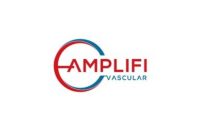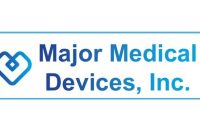SAN FRANCISCO, Nov. 1, 2017 /PRNewswire/ — Symic Bio, a biopharmaceutical company developing novel matrix-targeting biotherapeutics, today announced results from the Phase 1/2 SHIELD trial evaluating SB-030, a locally administered therapeutic, in patients with peripheral vascular disease undergoing angioplasty. In this first-in-human, prospective, randomized, single-blind controlled study of 67 patients, SB-030 demonstrated a positive safety profile, with no clinically meaningful difference observed in adverse events between treatment and control groups. In addition, treatment with SB-030 demonstrated potential for improvements as compared to control across measurements of clinical efficacy in late lumen loss, target lesion revascularization and primary patency rate.
“These results demonstrate clear potential for SB-030 in vascular disease, providing the first clinical proof of concept for this new mechanism,” commented Andrew Holden, MBChB, director of interventional radiology at the Auckland Regional Public Health Service and one of the lead investigators in the SHIELD trial. “The promise of SB-030 in improving outcomes following vascular interventions is particularly striking given its unique mechanism of action and safety profile.”
“These results support our plan to develop SB-030 as a first-in-class treatment to prevent vein graft failure following peripheral bypass graft surgery,” stated Ken Horne, Chief Executive Officer of Symic Bio. “There are no approved treatments for reducing vein graft failure and patients experience high rates of amputation and mortality. We see potential for SB-030 to have a major impact in this area of vascular disease. We intend to begin a Phase 3 trial of SB-030 in prevention of peripheral vein graft failure in 2018.”
“The SHIELD trial provides clinically relevant data for SB-030 in patients with peripheral vascular disease,” commented Michael Conte, M.D., chief of vascular and endovascular surgery at the University of California, San Francisco, and an investigator in the planned Phase 3 study of SB-030. “Loss of patency is associated with amputation in patients who undergo revascularization for advanced peripheral vascular disease. The outcomes observed in the SHIELD trial suggest potential for SB-030 to improve vessel healing. Peripheral vein graft procedures are in serious need of innovative approaches to extend long term patency, and SB-030 provides a technically and biologically attractive solution.”
Of the per-protocol patients within the SHIELD trial at 24 weeks following treatment, SB-030 treatment demonstrated potential to improve angiographic measurements of vessel diameter relative to control, referred to as late lumen loss, with a 32 percent mean improvement that did not reach the level of statistical significance (p=0.165). Statistical assessment was impacted by a smaller than expected control arm, non-normal data distribution, and a higher rate of bailout procedures in the control arm. Bailout procedures, typically stents that are placed periprocedurally due to vasospasm, were required for 38 percent of patients in the control group as compared with 9 percent of patients in the SB-030 treatment group (p=0.006). Non-parametric testing of the distribution of measurements in late lumen loss demonstrated a statistically significant difference between treatment and control groups (p=0.018). SB-030 treatment also reduced the rate of target lesion revascularization (TLR) by 22 percent. In addition, interim results from the extension phase of the study show promising trends for improved primary patency rate at 12 months. Safety assessments were confirmed by an independent medical monitor.
About SB-030
SB-030 is in development to improve clinical outcomes following peripheral vein graft procedures. SB-030 is administered locally, acting on the extracellular matrix of exposed connective tissue. In targeting responses mediated by the extracellular matrix, SB-030 aims to reduce the scarring (neointimal hyperplasia) and blood clot formation that leads to vein graft failure. Beyond vein graft failure, SB-030 has potential applications for other types of vascular procedures, including coronary bypass and surgical intervention in late-stage kidney disease. For more information on SB-030 please see http://www.symic.bio/pipeline/vascular-disease/ or https://www.youtube.com/watch?v=deyho7VBXTw.
About the SHIELD trial
The proof-of-concept Phase 1/2 SHIELD (Study in Humans to Investigate the Efficacy and Safety of Luminal SB-030 Delivery in Peripheral Vascular Disease) trial was a parallel, blinded, randomized (2:1) clinical trial undertaken at multiple sites in Australia and New Zealand. The trial enrolled 67 patients with symptomatic peripheral vascular disease. It compared the safety and efficacy of balloon angioplasty with or without the administration of SB-030 (also known as SBVC) in patients undergoing angioplasty to address reduced blood flow (occlusions) within the femoropopliteal artery. The trial included a primary efficacy measurement of late lumen loss at 6 months, a standard measure of restenosis following vascular injury, and also evaluated other clinically relevant outcomes such as target lesion revascularization. More information on the trial can be found at https://clinicaltrials.gov/ct2/show/NCT02568293.
About Symic Bio
Symic Bio is a biopharmaceutical company developing novel matrix-targeting biotherapeutics, a new category of therapeutics focused on matrix biology. These biotherapeutics, with potential applications in a wide variety of disease states, are inspired by naturally occurring macromolecules that play key regulatory roles within the extracellular matrix. Symic Bio currently has two clinical candidates: SB-030, which is targeting the prevention of peripheral vein graft failure, and SB-061, directed at disease modification and pain management in the treatment of osteoarthritis. In addition, Symic Bio is investigating applications in the areas of fibrosis, oncology and diseases of the central nervous system. For additional information please visit the company’s website at www.symic.bio, LinkedIn page at www.linkedin.com/company/symic-bio or follow on Twitter at www.twitter.com/symicbio.
SOURCE Symic Bio






